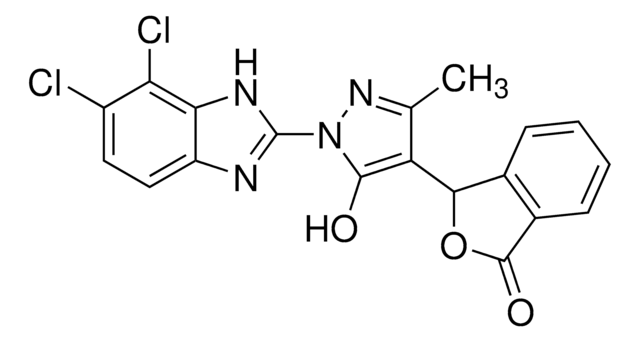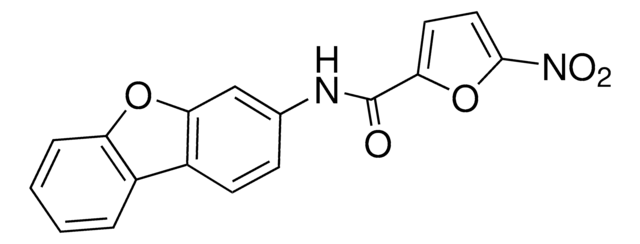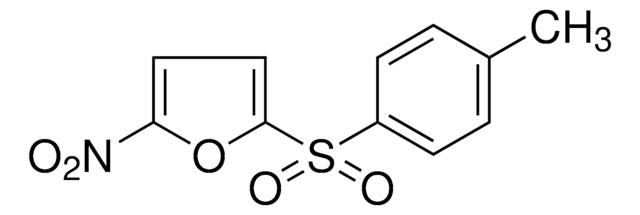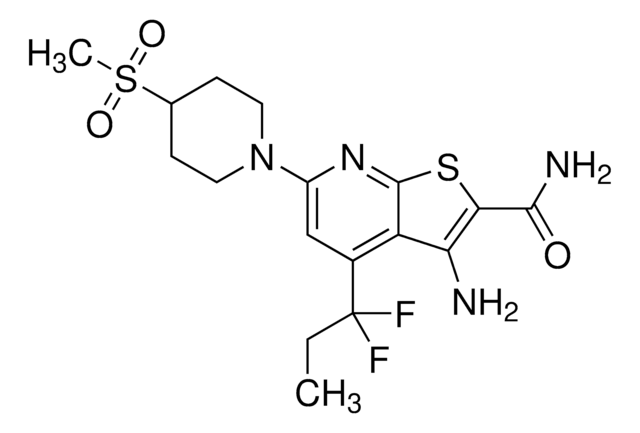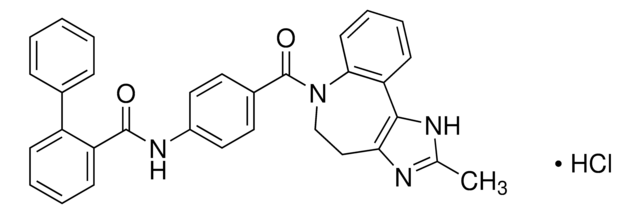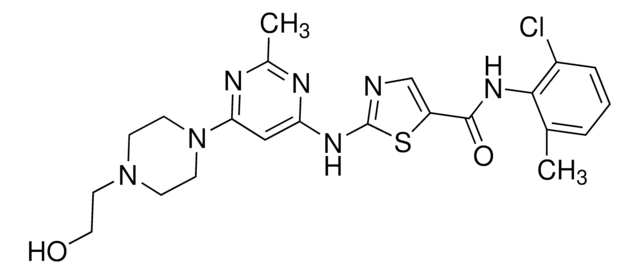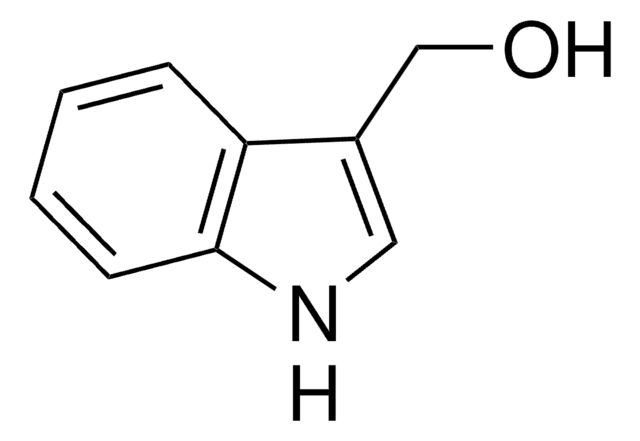SML2437
H-151
≥98% (HPLC)
Sinonimo/i:
1-(4-Ethylphenyl)-3-(1H-indol-3-yl) urea
Autenticatiper visualizzare i prezzi riservati alla tua organizzazione & contrattuali
About This Item
Formula empirica (notazione di Hill):
C17H17N3O
Numero CAS:
Peso molecolare:
279.34
Numero MDL:
Codice UNSPSC:
12352200
NACRES:
NA.77
Prodotti consigliati
Saggio
≥98% (HPLC)
Forma fisica
powder
Colore
white to beige
Solubilità
DMSO: 2 mg/mL, clear
Temperatura di conservazione
2-8°C
Azioni biochim/fisiol
H-151 is an irreversible antagonist of the stimulator of interferon genes (STING) protein, a central signalling component of the cytosolic DNA sensing pathway. Although STING is a vital component of the innate immune pathways, it has also been shown to have a pathogenic role in some inflammatory diseases. H-151 is a potent and selective STING antagonist with inhibitory activity both in human cells and in vivo in mice. Given as a pretreatment, H-151 was shown to attenuate pathological features of autoinflammatory disease in mouse models, reducing systemic cytokine responses in mice treated with the STING agonist 10-carboxymethyl-9-acridanone (CMA)
Codice della classe di stoccaggio
11 - Combustible Solids
Classe di pericolosità dell'acqua (WGK)
WGK 3
Punto d’infiammabilità (°F)
Not applicable
Punto d’infiammabilità (°C)
Not applicable
Certificati d'analisi (COA)
Cerca il Certificati d'analisi (COA) digitando il numero di lotto/batch corrispondente. I numeri di lotto o di batch sono stampati sull'etichetta dei prodotti dopo la parola ‘Lotto’ o ‘Batch’.
Possiedi già questo prodotto?
I documenti relativi ai prodotti acquistati recentemente sono disponibili nell’Archivio dei documenti.
J H Hamman et al.
Drug development and industrial pharmacy, 29(2), 161-172 (2003-03-22)
N-trimethyl chitosan chloride (TMC) is a polycation that enhances drug transport across epithelia by opening tight junctions. The degree of quaternization of TMC determines the number of positive charges available on the molecule for interactions with the negatively charged sites
Amir K Varkouhi et al.
Bioconjugate chemistry, 21(12), 2339-2346 (2010-11-06)
N,N,N-Trimethylated chitosan (TMC) is a biodegradable polymer emerging as a promising nonviral vector for nucleic acid and protein delivery. In the present study, we investigated whether the introduction of thiol groups in TMC enhances the extracellular stability of the complexes
Il team dei nostri ricercatori vanta grande esperienza in tutte le aree della ricerca quali Life Science, scienza dei materiali, sintesi chimica, cromatografia, discipline analitiche, ecc..
Contatta l'Assistenza Tecnica.